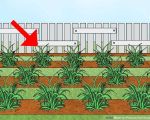Introduction: Why Controlling Weeds is Essential for Your Lawn
As a homeowner, ensuring that your lawn is healthy and thriving requires more than just regular mowing and watering. One of the most common challenges faced by lawn owners is controlling weeds. These pesky plants not only detract from the appearance of your lawn but also compete with your grass for vital nutrients and water, leading to poor lawn health. In this article, I’ll share practical tips on how to control weeds in your lawn effectively, ensuring your yard remains lush, green, and weed-free throughout the year.
1. Understanding the Types of Weeds in Your Lawn
Before diving into methods for controlling weeds, it’s important to identify the types of weeds you're dealing with. Broadly, there are two categories of weeds that affect lawns:
1.1 Annual Weeds
These weeds complete their life cycle in one growing season. Common examples include crabgrass and chickweed. They germinate from seeds, grow, flower, and die within the same year.
1.2 Perennial Weeds
Perennial weeds, such as dandelions and clover, live for more than one year. These weeds can be more difficult to control because they come back every season, often spreading through their root systems.
2. Effective Weed Prevention Methods
The best way to handle weeds is to prevent them from growing in the first place. Here are some strategies I recommend:
2.1 Maintain a Healthy Lawn
The healthier your lawn, the less likely weeds are to take hold. Regular fertilization and proper watering encourage grass to grow thick and strong, which naturally crowds out weeds. Be sure to choose the right type of grass for your region and soil conditions.
2.2 Mulch Your Lawn
Mulching around your lawn’s edges can prevent weed seeds from sprouting by blocking sunlight. Use organic mulches, like wood chips or bark, which will also improve soil quality as they decompose.
3. Natural Weed Control Solutions
If you prefer a chemical-free approach to weed control, there are several natural methods you can try:
3.1 Hand Pulling Weeds
Hand-pulling weeds is one of the simplest, yet most effective, ways to remove them, especially for small patches. Be sure to pull weeds when the soil is moist so you can remove the entire root, preventing them from regrowing.
3.2 Vinegar Solution
Vinegar can be a powerful natural herbicide. A mixture of 20% vinegar and water can kill weeds, especially in dry weather. However, use it carefully, as it can also harm your grass if applied in excess.
3.3 Boiling Water
Pouring boiling water over weeds is another simple method. It’s particularly effective for weeds growing in cracks or pavement. Be cautious when using boiling water, as it can damage surrounding plants.
4. Chemical Weed Control: When Necessary
While natural solutions are ideal, sometimes chemical herbicides may be necessary, especially for large infestations of tough weeds like dandelions or crabgrass. It’s important to choose selective herbicides that target weeds without harming your lawn. Always follow the instructions carefully to avoid overuse.
4.1 Pre-Emergent Herbicides
These herbicides prevent weed seeds from germinating. Applying pre-emergent herbicides in early spring can keep annual weeds from taking root.
4.2 Post-Emergent Herbicides
Post-emergent herbicides are used to target weeds that are already visible. Be sure to apply them directly to the weeds to avoid damaging your grass.
5. Regular Lawn Maintenance to Prevent Weed Growth
Weeds can quickly return if you neglect regular lawn maintenance. Here are a few ongoing tasks to keep your lawn in top shape:
5.1 Mowing
Keep your lawn mowed at the right height for your grass type. Cutting your grass too short can expose the soil to weed seeds, while taller grass can shade out potential weed growth.
5.2 Aerating the Lawn
Aerating your lawn once a year helps to improve water and nutrient absorption and reduces soil compaction. It also helps create a healthier environment for your grass, making it harder for weeds to establish themselves.
6. Professional Lawn Care Services
If you find that weeds are taking over your lawn despite your best efforts, it may be time to call in a professional. Lawn care services can help assess your lawn’s health, provide expert treatment, and ensure that weeds don’t stand a chance. Many lawn care companies offer both natural and chemical solutions, depending on your preference.
If you need assistance with lawn care, check out Lawn Care Services for reliable and effective weed control solutions tailored to your lawn’s needs.
Conclusion: A Weed-Free Lawn Is Possible
While dealing with weeds can be a frustrating part of lawn care, with the right techniques, it's possible to control them and enjoy a beautiful, lush lawn all year long. Whether you opt for natural remedies or rely on chemical solutions, consistency is key. Happy gardening!








